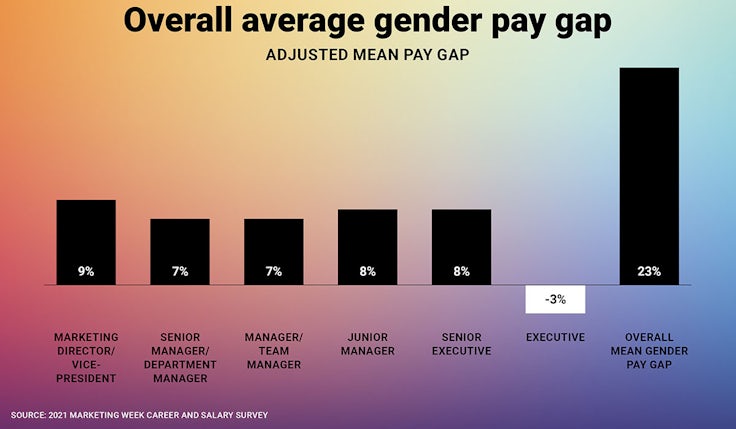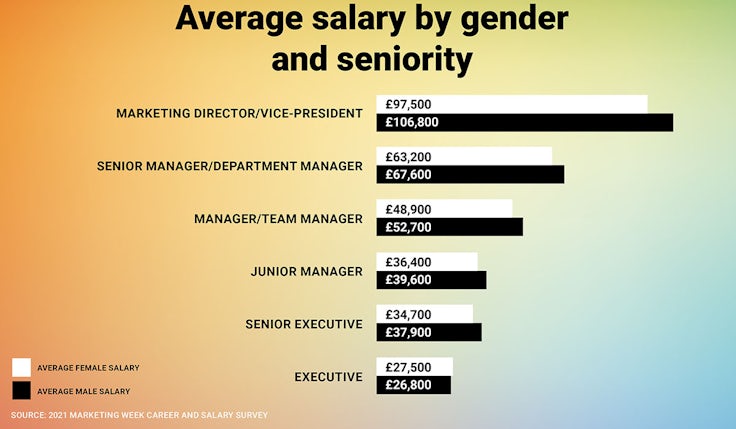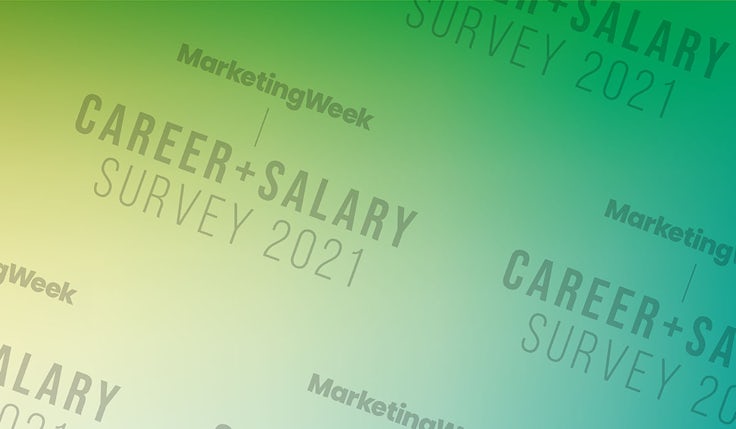Female marketers suffer pay gap blow as Covid hits careers
The twin challenges of Covid-19 and an entrenched gender pay gap are harming the ability of female marketers to earn at an equal level to their male peers, at the same time as exclusive Marketing Week data reveals the salary gap widening the more senior they become.
 The coronavirus crisis, while still ongoing, has already had a disproportionate impact on women’s careers, with real fears the pandemic has wiped out decades of progress towards gender equality.
The coronavirus crisis, while still ongoing, has already had a disproportionate impact on women’s careers, with real fears the pandemic has wiped out decades of progress towards gender equality.
Job losses among women have proved to be 1.8 times greater than among men as a result of Covid-19, according to McKinsey. While women make up 39% of global employment, by the summer they had accounted for 54% of overall job losses.
For those women still in work, the gender pay gap remains a persistent and troubling issue. Exclusive Marketing Week 2021 Career and Salary Survey data reveals the marketing profession has an overall mean gender pay gap for full time workers of 23%, down slightly from 28% in 2020.
Now is our best chance to eradicate the gender pay gap
Still stubbornly high, this number exceeds the national gender pay gap. Statistics released by the Office of National Statistics in November show the median gender pay gap in 2020 for full-time employees was 7.4%, with a mean gender pay gap of 11.5%. The government defines the gender pay gap as the difference between men’s and women’s hourly earnings as a percentage of men’s earnings.
For marketing and sales directors (the most obviously comparable sector), the ONS median gender pay gap is 7.8%, with a mean gender pay gap of 10.4%, far lower than the level exposed by Marketing Week.
When looking at pay gap cut by seniority, the 2021 Career and Salary Survey data shows the problem worsens the further women progress in their marketing careers. Given the theme of today’s International Women’s Day (8 March) is ‘Women in leadership: Achieving an equal future in a Covid-19 world’, the statistics make difficult reading.
Female marketers only earn more than their male counterparts in the most junior role of marketing assistant (£27,500 vs £26,800). From then on female marketers are at a disadvantage at every rung of the ladder, climbing to an almost £10,000 pay gap at marketing director/vice-president level (£97,500 vs £106,800).
 This issue is not limited to marketing. Gender equality charity The Fawcett Society calculated Equal Pay Day 2020 (the day when women, on average, stop earning relative to men) as 20 November. The society has, however, raised questions about the veracity of the government data on which this figure was calculated, given the disruption caused by Covid-19.
This issue is not limited to marketing. Gender equality charity The Fawcett Society calculated Equal Pay Day 2020 (the day when women, on average, stop earning relative to men) as 20 November. The society has, however, raised questions about the veracity of the government data on which this figure was calculated, given the disruption caused by Covid-19.
WACL, the body for women in advertising and communications leadership, ran its own campaign pushing for the reinstatement of gender pay gap reporting, which was suspended last year due to the pandemic. Its petition to reinstate pay gap reporting and put pressure on companies to disclose their strategies to close the gender pay gap, garnered more than 2,500 signatures.
Mandatory gender pay gap reporting was finally reinstated in February, but companies failing to meet the deadline of 4 April have been granted a six-month extension to gather their data. This is after the Equality and Human Rights Commission confirmed it would not begin enforcement until 4 October.
Change cannot come soon enough given the stark impact of Covid-19 on women’s careers and the prevalence of the gender pay gap in 2021. Couple with this the firm business case for prioritising gender equality and more needs to be done.
McKinsey found one in four women in North America were thinking about reducing or leaving paid work due to the pandemic, citing their organisation’s inflexibility, caring responsibilities and stress. According to the data, 8% of mothers surveyed had considered going from full- to part-time work, versus just 2% of fathers.
The consultancy suggests that in a “gender-regressive scenario” – where no action is taken to redress the balance – global GDP growth could be $1tn lower in 2030 than if women’s unemployment simply tracked that of men in each sector. The consultancy points out this outcome could end up being worse if the global recovery is slower than expected, childcare burdens increase and public spending drops.
By comparison, McKinsey estimates that if society takes action now to advance gender equality, $13tn could be added to global GDP by 2030.
Click here to read all Marketing Week’s reporting from the 2021 Career and Salary Survey
*Marketing Week’s adjusted mean gender pay gap is calculated from full-time (35+ hours a week) respondents providing their basic annual salary, excluding any additional benefits.








Comments